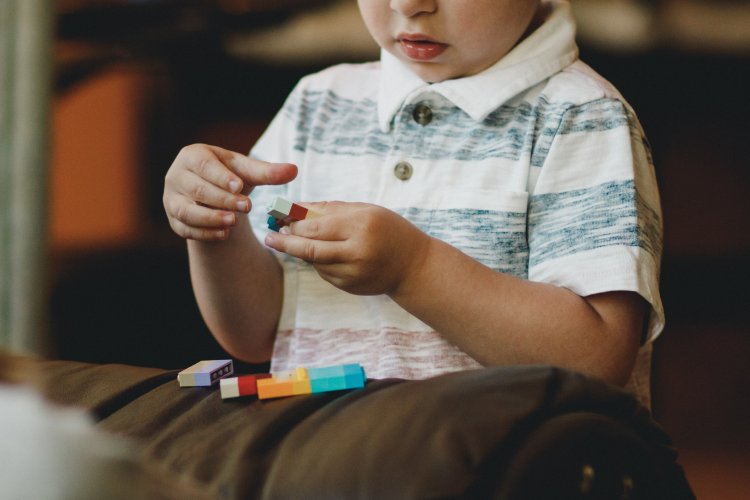For Parents
5 Pieces Of Advice For Parents With Autistic Children
- May 18, 2022
- 0
- 1603

1 in 44 children is diagnosed with autism, many of them showing signs even before they turn three years old. An autism diagnosis can be hard on parents. They often struggle with a roller-coaster of emotions like grief, sadness or anger. Along with navigating the health care system, the new challenges parents also face include insurance companies, strained relationships and financial struggles. To help support you in this journey, we will take a look at common characteristics of autistic children and five tips to take care of them.
Characteristics of Autistic Children
In 2015, the notion of an autistic spectrum emerged. From low-functioning autism – which needs substantial support – to high-functioning autism, which requires relatively less support.
Common characteristics across the spectrum include:
- Lack of responsiveness: Autistic children can seem emotionally and physically non-responsive and detached.
- Communication struggles: They may need repetition to understand. Pronouns, figures of speech and sarcasm are not going to be apparent to them.
- Sensory overload: Autistic children can be adversely affected by bright lights, loud noises or sudden movements.
While raising children with autism, you are bound to struggle with issues like aggression and tantrums. Conduct in-depth research regarding the symptoms your child is displaying. These five tips are a great starting point -
1. Seek External Support
Medical facilities and increased awareness of autism have led to the development of speech and behavioral therapy. These techniques help your child and prepare them better for their education.
You can also benefit from joining support groups. Being around families going through the same journey can be comforting. Finally, don’t forget to take care of yourself. Make it a point to cater to your own physical and mental health, as well.
2. Embrace New Family Dynamics
Each member of your family will react to an autism diagnosis differently. As more attention goes toward an autistic child, other siblings can feel neglected. They may also have to step into a caregiver's role. Acknowledge evolving family dynamics when everyone is together,and encourage open conversations about it. Allow different members to express their struggles and high points as they navigate the shift.

3. Positive Association
When speaking to your autistic child about their diagnosis, be positive and factual. Children are sensitive to cues; if they see you beating around the bush, they may interpret it as shame or anger. Create an accepting environment for them.
4. Communication Is Key
Some autistic children may struggle with communication. Encourage the use of sign language. Early on, incorporate simple, non-verbal signs in your communication with them. For example, a hand on your heart can mean ‘I love you.’ Autistic children can face frustration around communication because their loved ones are unable to understand them. Non-verbal signs can help ease this.
5. Remember To Socialise
Bring your child to social spaces, rather than sheltering them. Allow them to mingle with both autistic and non-autistic children. They may resist by kicking or screaming, but introducing them to a community helps them explore and adapt to newer environments. You can also set up playdates with their classmates and take them to exciting places like amusement parks or aquariums.
Autism is not a sprint, it's a marathon. Some days will be better than others. But preparation makes a huge difference. With an abundance of resources, professional help and support from friends and family, you too can provide a healthy life for your child and yourself.
Add Comment
Related Blogs

For Parents
COVID-19: Everything You Need to Know About New Mask Rules for Schools...
- Sruthi Sah...
- Sep 30, 2022
- 0
- 1796
Popular Blogs

Tips for Educators
3 Tips To Apply Classical Conditioning In Classrooms
- Natasha Di...
- Apr 25, 2022
- 0
- 21939

Understanding Concepts
4 Reasons Why Skill-Based Learning Is Important For Students
- James Coop...
- Mar 14, 2022
- 0
- 11265

For Parents
Everything You Need To Know About STEAM Education As A Parent
- James Coop...
- Mar 1, 2022
- 0
- 11191












